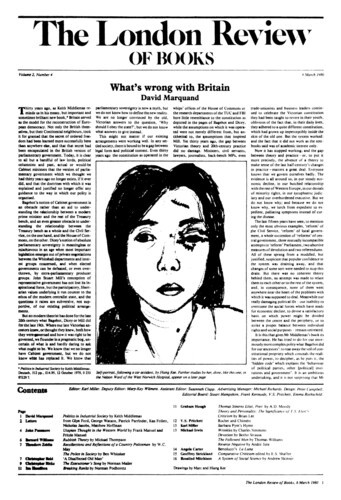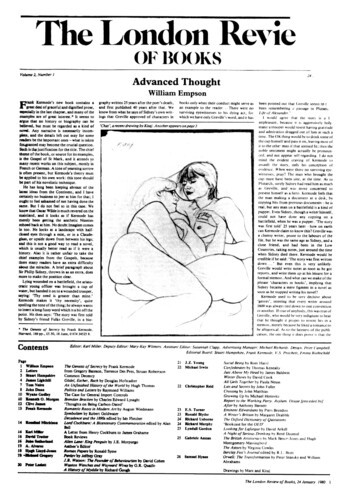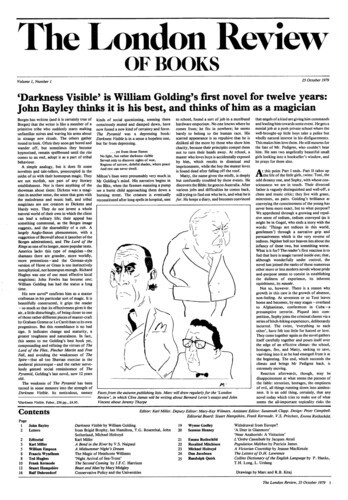Rosalind Mitchison
Rosalind Mitchison a professor of social history at the University of Edinburgh, is the author of A History of Scotland and editor of The Roots of Nationalism. Union of the Crowns and Union of the Kingdoms is to be published later this year by Edward Arnold.
Simplicity Smith
Rosalind Mitchison, 6 March 1980
Here are nine separate essays on different aspects of the whole construction of Adam Smith’s thought, written originally for separate publication during the past eight or nine years, but now reworked to link and hold together. Because of the reworking, the book shows Adam Smith as the creator of a whole system of knowledge including science, anthropology, moral philosophy, psychology and history, as well as the founder of economics. The book brings out both the common features of the different branches of this system and the well-known rift between the human nature of the moral system, with its deep ties of sympathy for others, and the calculating but beneficial selfishness of the human nature of the world of economic relationships. Since Smith held that the types of human society, of political and social structure, were all dictated by the ‘mode of subsistence’, this rift is a fundamental cleavage across the whole span of the system. Because of it, it is in the economic system rather than in the moral that the ‘hidden hand’ of God had an elaborate task to perform.
Lord Eskgrove’s Indecent Nose
Rosalind Mitchison, 24 January 1980
Henry Cockburn
Foremost Economist
Rosalind Mitchison, 25 October 1979
Three names dominate the debates on the social policy of 19th-century Britain: Bentham, Malthus and Chalmers. The first two were original thinkers whose ideas often contradict the system popularly ascribed to them. We have been forced over the last few years to recognise that Bentham’s idea of government was far more sophisticated than the particular pieces of legislation usually labelled Benthamite. Now a remarkably thorough investigation of his life and writings emphasises and develops what Keynes pointed out forty years ago: that there was much more to Malthus than Malthusianism.
Pieces about Rosalind Mitchison in the LRB
Joining them
Conrad Russell, 24 January 1985
Goodwin Wharton is a fascinating and amusing figure, but he is sui generis: the same things which make his flirtations with the occult such amusing reading also make it difficult to compare his...
Read anywhere with the London Review of Books app, available now from the App Store for Apple devices, Google Play for Android devices and Amazon for your Kindle Fire.
Sign up to our newsletter
For highlights from the latest issue, our archive and the blog, as well as news, events and exclusive promotions.



